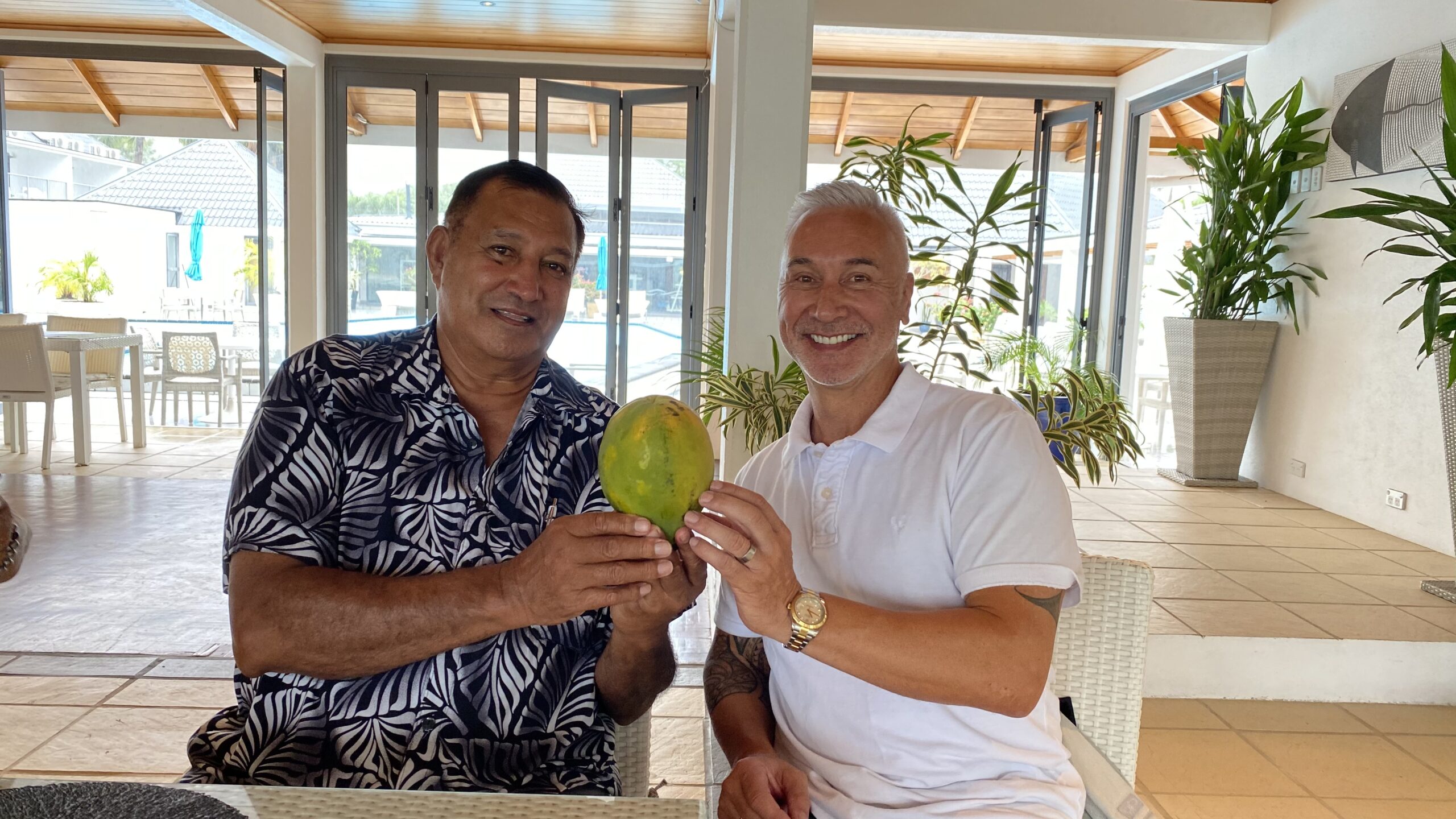Biosecurity workshop discusses trade risks
Friday 25 March 2022 | Written by Caleb Fotheringham | Published in Economy, National

In May 2021 New Zealand real estate mogul Mike Pero tried to re-ignite the Cook Islands pawpaw industry with his airline idea Pasifika Air. SUPPLIED/21050734
Swine fever, beetles, worms and giant snails were topics of discussion at the Export and Import Biosecurity Measures Workshop held at the Crown Beach Resort on Wednesday.
The pests were discussed as part of the associated risks to trade in the Cook Islands.
Director of biosecurity services, Ngatoko Ngatoko said these pests were not established in the Cook Islands but posed a threat to the agriculture industry and environment.
“It’s important that we keep our borders and Pa Enua free of these unwanted pests, we are all in together to protect our future.”
African swine fever is a viral disease affecting both domestic and wild pigs.
In the presentation, it was described as a “devasting disease that would impact on livestock producers, our communities and economy”.
The virus can be transmitted through pork products and can survive for a long time. It’s found in some Asian countries and Papua New Guinea.
The Coconut Rhinoceros Beetle was described as a “highly invasive species” and is a pest of coconut trees.
It’s already been found in Guam, Papua New Guinea, Hawaii since 2013 and the Solomon Islands since 2015.
The fall armyworm is established in Australia and New Caledonia, it is also a threat to the Cook Islands. It attacks a large number of crops including sugarcane, banana, eggplant and tomatoes.
The last pest mentioned was the Giant African Snail, it was described as “one of the most damaging snails in the world”.
Samoa has the Giant African Snail – because of Samoan ports’ close proximity to the Cook Islands, the country is vulnerable to the pest.
Regular Giant African Snail baiting at the Cook Islands ports was the recommendation for it not to be introduced here.
Ngatoko said if these pests get in the country, they would have a “huge impact”.
“We don’t want to get them here, once they get here they will be hard to control, it will be quite impactful.
“There will be a lot of damage.”
Ngatoko said it would require a lot of resources to control the pests if they arrive.
He said according to experts the isolation of the Cook Islands protected the country from pests.
To prevent the introduction of invasive animals and diseases, Ngatoko said the country needed to strengthen its inspection.
“We encourage our travelling passengers to come in and ask for permission, especially from plant materials.”
He said the biosecurity service wanted to build up people’s awareness of invasive species that pose a risk to the Cook Islands.












































